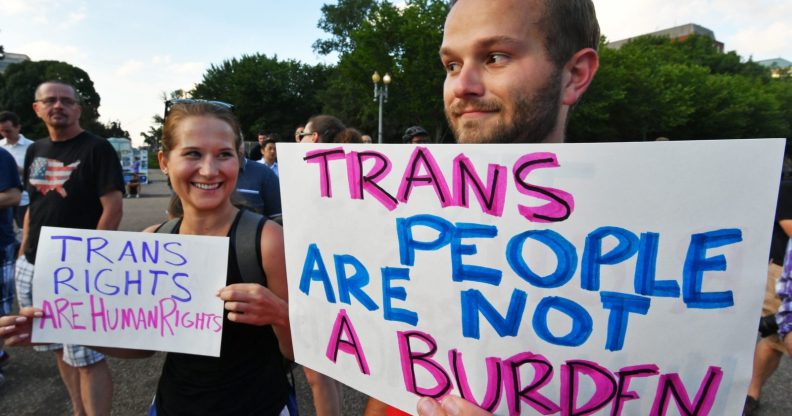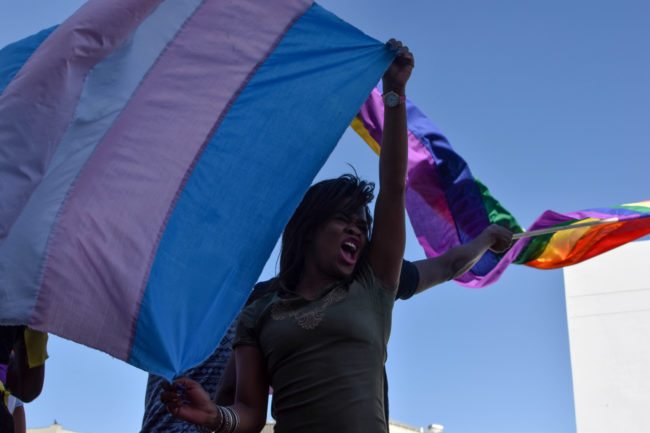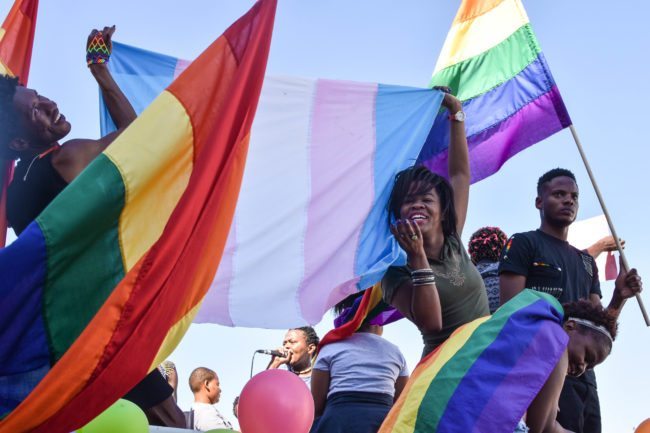British transgender woman gets asylum in New Zealand because of persecution in the UK

(Getty)
A British transgender woman has been given asylum in New Zealand because of the persecution she faced in the UK.
The 57-year-old only transitioned in 2005, despite identifying as female since the age of seven.
She experienced violence and abuse and hid her identity from friends, family and colleagues, The Guardian reports.

Namibia Pride march (Getty)
Transphobic abuse continues to be a serious issue in the UK.
Trans people still face violent crime and transphobic slurs, as well as bullying in schools and the workplace.
Following her gender reassignment surgery, the woman faced discrimination from her colleagues and strangers.
After the woman, who worked in the IT department of a large multinational company, complained to HR, the perpetrator of the abuse threatened her by saying he would “rip her head off”.
A tribunal in Auckland added that her work environment was both “homophobic” and hostile to what staff called “tranny freaks”.
She also faced verbal and physical abuse, including being groped, and decided to only shop at night.

Trans flag at Pride in Namibia (Getty)
The tribunal said it would be “unduly harsh” to send the woman back to the UK when she is “safe, happy, settled and accepted” in New Zealand.
The woman’s parents and sister also live in the country.
Her mental health has improved since she moved to New Zealand and she has apparently not faced transphobic abuse since her relocation.
Bex Stinson, Head of Trans Inclusion at Stonewall, said: “It should be a national embarrassment that a British trans woman has sought – and been granted – refuge in another country because she fears for her life here.
“There is no way that we can call ourselves a world-leader in LGBT equality if other countries agree that it is simply too dangerous to ask an openly trans woman to return to live here. It raises some very big questions that we need to answer.
Stinson added: “It’s clear to us that, recently, transphobic language and sentiment has become almost normal across media and social media channels. This is unacceptable.
“This case should act as a wake-up call for everyone, as the situation for trans people in Britain continues to worsen. It’s more vital now than ever before that allies speak up for the trans community, openly tackle prejudice where they find it, and do everything they can to help advance equality for all trans and non-binary people in our communities.”
Figures released earlier this year show that more than four in five transgender schoolchildren have self-harmed, while nearly half have tried to take their own lives.
In 2015, LGBT rights charity Stonewall recruited a number of transgender people to join its new Trans Advisory Board – as the organisation begins campaigns on trans issues.
“The Stonewall Trans Advisory Group reflects a diverse range of trans voices and experiences, with members representing a range of ethnic backgrounds, religions, experiences and trans identities,” the group said.
“It will help shape the strategic direction of the organisation and its work with, and for, trans communities.”

